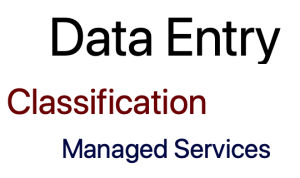Project management is the process of planning, organizing, and executing tasks and activities to achieve specific project goals within defined constraints such as time, budget, and resources. It involves coordinating and leading a team to accomplish project objectives while ensuring effective communication, risk management, and stakeholder engagement. Here are the key components of project management:
- Project Initiation:
- Project Charter: Defining the project’s purpose, objectives, scope, deliverables, stakeholders, and overall project plan.
- Stakeholder Identification: Identifying key stakeholders, understanding their expectations, and defining their roles and responsibilities in the project.
- Project Feasibility: Assessing the project’s feasibility in terms of technical, financial, operational, and organizational aspects.
- Project Planning:
- Work Breakdown Structure (WBS): Breaking down the project scope into manageable work packages and defining the tasks, dependencies, and timelines.
- Project Schedule: Developing a timeline or Gantt chart that outlines the sequence and duration of project tasks, milestones, and deadlines.
- Resource Allocation: Identifying the necessary resources (human, financial, equipment) required for project execution and ensuring their availability.
- Risk Assessment and Management: Identifying potential risks, analyzing their impact and likelihood, and developing risk mitigation strategies.
- Communication Plan: Defining the communication channels, frequency, and stakeholders to ensure effective project communication and information sharing.
- Project Execution:
- Task Assignment: Assigning tasks to team members, providing clear instructions, and ensuring everyone understands their responsibilities.
- Team Collaboration: Promoting effective teamwork, communication, and collaboration among project team members to accomplish project objectives.
- Monitoring and Control: Regularly tracking project progress, comparing it against the project plan, and taking corrective actions when necessary.
- Quality Assurance: Implementing quality control measures to ensure that project deliverables meet the defined standards and meet stakeholder expectations.
- Change Management: Managing changes to the project scope, schedule, or resources through proper evaluation, approval, and documentation processes.
- Project Communication:
- Stakeholder Engagement: Regularly communicating with project stakeholders to keep them informed, address concerns, and manage expectations.
- Progress Reporting: Providing timely and accurate updates on project status, milestones achieved, risks, and issues to stakeholders.
- Project Documentation: Maintaining project documentation such as meeting minutes, progress reports, change requests, and lessons learned for future reference and audit purposes.
- Project Closure:
- Deliverable Acceptance: Obtaining formal acceptance from stakeholders that project deliverables have been completed as per requirements.
- Project Evaluation: Conducting a post-project review to assess project performance, identify lessons learned, and gather feedback for continuous improvement.
- Knowledge Transfer: Documenting and sharing project knowledge, best practices, and lessons learned with relevant stakeholders to benefit future projects.
- Project Closure Documentation: Compiling all project-related documents, including final reports, financial records, and contracts, for archiving and reference.
Project management methodologies and frameworks, such as Agile, Waterfall, or PRINCE2, can be utilized depending on the project’s nature and requirements. Effective project management ensures that projects are delivered on time, within budget, and meet the desired outcomes while maximizing resource utilization and minimizing risks.

